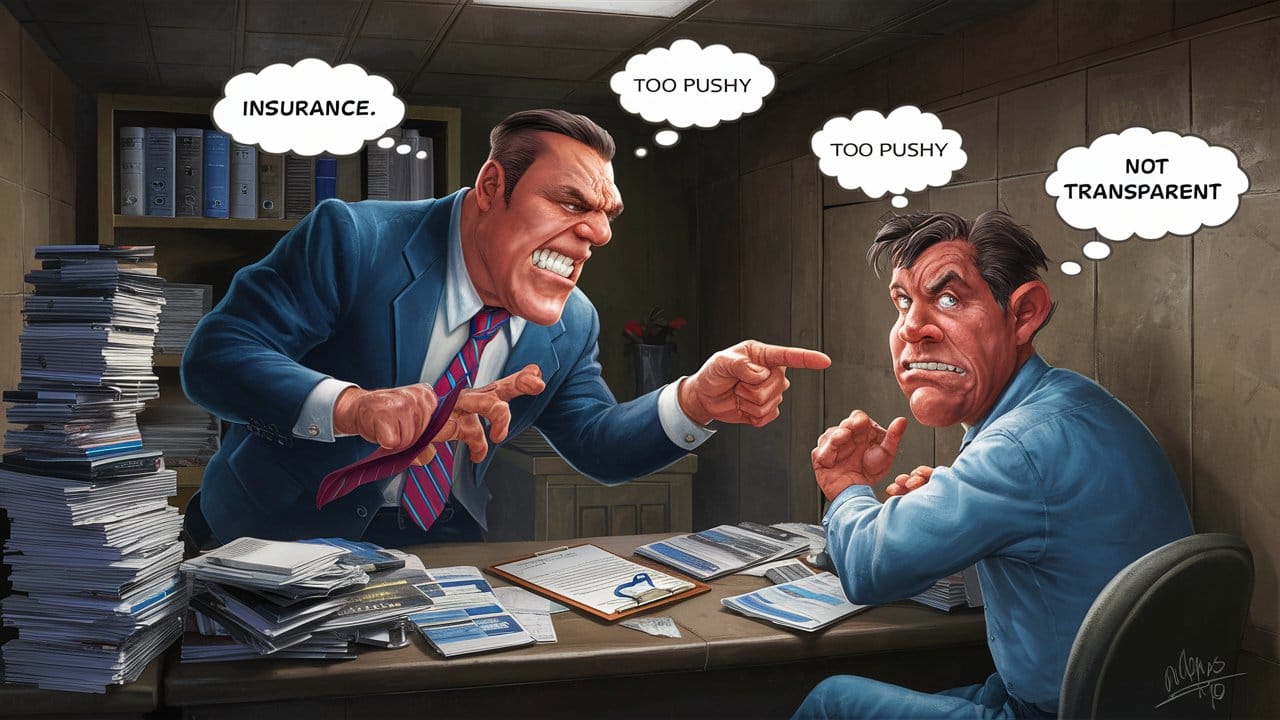Insurance is a necessity in today’s world, yet the people selling it often find themselves grappling with a negative reputation. Many individuals cringe at the thought of meeting an insurance salesman, associating them with pushy tactics and endless follow-ups. But why exactly do people feel this way? Let’s dive into the reasons behind this sentiment and explore how it might be changed.
The Root Causes of Dislike for Insurance Salesmen

1. Perception of Aggressive Sales Tactics
One of the most common complaints about insurance salesmen is their overly aggressive approach. Many people feel bombarded with calls, emails, and even home visits from sales representatives. This relentless pursuit can make potential customers feel pressured rather than supported.
Aggressiveness often stems from the high-pressure environment in which insurance agents operate. Many work on a commission-based model, driving them to close as many deals as possible. While understandable from their perspective, this approach can alienate customers.
2. Lack of Transparency
Customers often complain about a lack of clarity regarding insurance products. Complex jargon and hidden clauses can leave people feeling confused or even misled. When a policy’s terms aren’t fully explained, trust between the customer and the salesman erodes.
Transparency is crucial in financial dealings, and when it’s missing, it’s easy to see why people might feel wary. Miscommunication or withheld information can lead to unpleasant surprises down the line, further tarnishing the reputation of insurance salespeople.
3. Stereotypes and Preconceived Notions
Media portrayals and anecdotal experiences have contributed to the stereotype of the “pushy insurance salesman.” This perception paints all agents with the same broad brush, regardless of their actual behavior.
Even those who approach their job with integrity and professionalism may find it challenging to overcome these negative stereotypes. First impressions matter, and an immediate association with an unpleasant image can make their job even harder.
How These Issues Affect the Customer Experience
Feeling of Being Sold to Rather Than Served
When a salesman prioritizes their commission over the customer’s needs, it shows. Customers want to feel understood and valued, but overly pushy sales tactics can make them feel like just another number.
Distrust of Recommendations
If an insurance agent is perceived as being dishonest or withholding information, it leads to skepticism. Customers may wonder if the products being offered are genuinely the best fit or just the ones that yield the highest commission.
Steps to Improve Perceptions of Insurance Salesmen
While some of these issues are deeply ingrained, change is possible. Here are a few ways insurance professionals can enhance their reputation:
1. Adopt a Customer-First Approach
A shift in focus from selling to serving can make a world of difference. Listening to the customer’s needs and offering tailored solutions fosters trust and loyalty.
For instance, rather than pushing the most expensive policy, an agent could highlight options that align with the client’s specific requirements.
2. Prioritize Transparency
Making terms and conditions easy to understand is key to building trust. Clear communication about what a policy covers—and what it doesn’t—helps manage expectations and avoid future disputes.
3. Utilize Technology to Educate Customers
Modern tools like online calculators and comparison platforms empower customers to make informed decisions. By leveraging these tools, salesmen can position themselves as helpful guides rather than pushy sellers.
4. Break the Stereotypes
Positive experiences can go a long way in reshaping perceptions. Professionalism, honesty, and a genuine desire to help can counteract negative stereotypes over time.
Why Understanding the Customer Perspective Matters
Ultimately, the key to overcoming these challenges lies in empathy. By understanding why people hesitate to engage with insurance salesmen, the industry can address these concerns head-on.
For customers, the takeaway is simple: not all insurance agents fit the stereotype. For every pushy salesman, there are countless professionals dedicated to helping their clients secure their financial future.
Final Thoughts
The dislike for insurance salesmen isn’t a blanket judgment but often stems from specific behaviors and misconceptions. By embracing transparency, focusing on customer needs, and striving to break stereotypes, the industry can shift perceptions.
Insurance is about protection and peace of mind. With the right approach, salesmen can transform their role from “pushy seller” to trusted advisor, creating a win-win situation for everyone involved.


